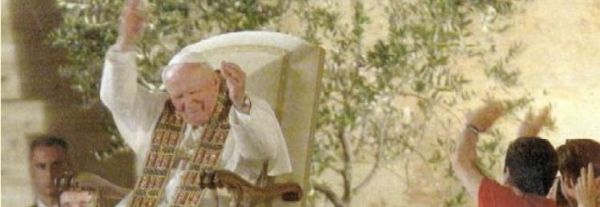6. The miraculous peaches are for the apostles and the church the "signs" of the fruitfulness of their mission if they remain deeply united to the saving power of Christ (cf. Lk 5:4-10; Jn 21:3-6). In fact, Luke includes in the narrative the fact of Simon Peter who throws himself at Jesus' knees exclaiming: "Lord, depart from me, for I am a sinner" (Lk 5:8), and Jesus' reply: "Fear not: from now on you shall be a fisher of men" (Lk 5:10). John in turn follows the narration of the fishing after the resurrection with Christ's command to Peter. "Shepherd my lambs, feed my sheep" (cf. Jn 21:15-17). It is a significant juxtaposition.
7. It can therefore be said that Christ's miracles, the manifestation of the divine omnipotence with regard to creation, which is revealed in his messianic power over men and things, are at the same time the "signs" through which the divine work of salvation is revealed, the salvific economy that with Christ is introduced and definitively implemented in human history and is thus inscribed in this visible world, which is also always a divine work. The people who - as well as the apostles on the lake - seeing the "miracles" of Christ ask themselves: "Who is . . . this one, to whom even the wind and the sea obey?" (Mk 4:41), through these "signs" are prepared to receive the salvation offered to man by God in his Son.
This is the essential purpose of all the miracles and signs performed by Christ in the eyes of his contemporaries, and of those miracles that throughout history will be performed by his apostles and disciples in reference to the saving power of his name: "In the name of Jesus Christ, the Nazarene, walk!" (Acts 3:6).
[Pope John Paul II, General Audience 2 December 1987]












